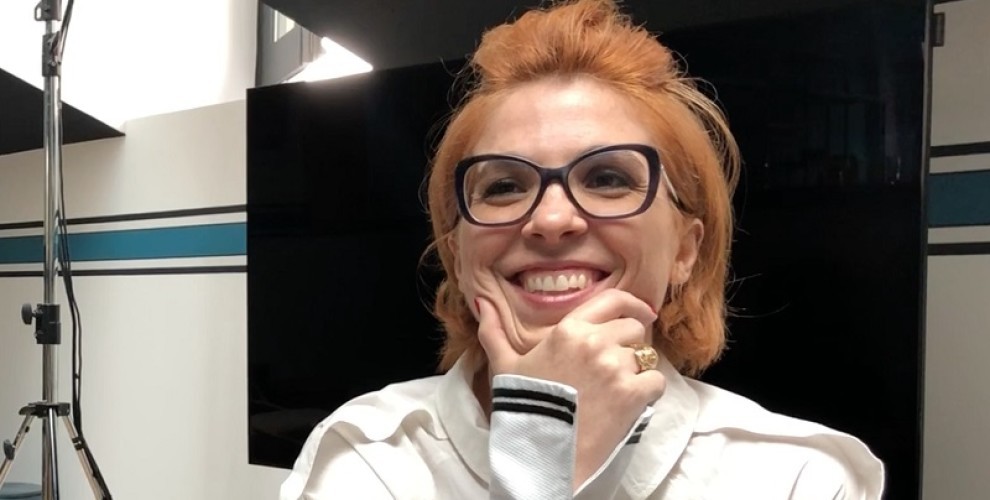Director of Girls of the Sun Eva Husson comes from a communist family who fought against Franco’s fascism in the Spanish Civil War. The French director first made her name with Bang Gang in 2015. The feature length film received awards from Toronto and several other film festivals, and received praise from critics.
Husson faces the audiences again now with her second feature length film Girls of the Sun screened in the 71st International Cannes Film Festival. The film about the Kurdish women’s fight against ISIS, and is among the 21 films competing for the Golden Palm. Girls of the Sun is among the most talked about films in the festival, and has already left its mark this year. Eva Husson says she was impressed by the Kurdish women’s resistance and made the film to draw attention to their struggle. “Resistance is in my blood,” says Husson as ANF talked about her latest film and the Kurdish women’s struggle.
How long have you known the Kurds?
I’ve known the Kurds for years and years. But my interest in the Kurdish issue has been since the summer of 2014. I became more interested after I heard of the attacks and massacre in Shengal. But I didn’t have time as I was working on another film at the time. After 2015, I read up on Kurds and started to do research. After February 2016, I went to Kurdistan.
When did you have the idea to make the film Girls of the Sun? How did you decide?
My Grandfather was a communist. He was a republican soldier in the Spanish Civil War. His brother was an anarchist. He and his brother fought against Franco’s fascism, then my grandfather went back to Paris to take part in the resistance. So I am the granddaughter of a resistance fighter against fascism in the Spanish Civil War. Resistance is in my blood. I would be so impressed by women who pick up arms to fight fascism, so they intrigued me. Because the two issues are the same for me. After I read up on the resistance and struggle of the Kurdish women, I decided to make such a film.
How long was the production?
After the research period, I went to Kurdistan in 2016. I went to Maxmur and various other places. I saw the female and male fighters, I spoke with them. I met with war correspondents. Other than these, I had many talks with many people. I even came across networks who take Êzidî women from Raqqa and Mosul to Kurdistan. I spoke with women who had been captured by ISIS and were later rescued.
Then I started to write the screenplay for the film. The actual filming was done last year. We first thought we would film in Kurdistan, but we couldn’t risk the lives of our people, as we have a big team. Then we thought we would film in Morocco. That didn’t work out either. Finally we found some similar locations in Georgia and we filmed there.
How do you see the Kurdish women’s fight against ISIS?
I hope that the women in this film will be an example for women of the world. It really is about all women throughout the world. Not bowing down, fighting, constantly fighting, these are victories in their own right. This gives the women strength and morale. For me, Kurdish women are extraordinary. That is why I wanted to make this film.
This is your second feature length film. The subject matter is quite heavy and risky. Did you have any worries?
Yes, it was very risky for me. Both mentally and physically. My life was at risk. For a long time I traveled with bodyguads assigned to me by the French state. It was risky to go to Kurdistan and Georgia. In fact, right after our filming in Georgia, there was an explosion. But none of these things matter. Because if you are righteous in your cause, the risks don’t matter. And it was worth taking the risk for this film.
The film shows Kurdish women fighting not just ISIS, but also feodal and regressive male mindsets.
This struggle by the women is based on the Marxist-feminist foundation developed by Öcalan. I do believe that tearing down the patriarchal system is essential to achieve a more egalitarian and just society.
Do you wonder what the women who are fighting in Rojava and Shengal today think of your film?
The women in Shengal didn’t see the film yet. I hope that they will see a part of their reality reflected in this film. Because the film is about them. They will see that what they do is important.
There are criticisms that the film is “propaganda”. What do you think?
There are criticisms that are far removed, irrelevant and ruthless. I believe these have an ulterior motive. On the other hand, there are people who cry when they see the film. Everybody should know that this is not a propaganda film. I don’t even mention any organizations. So criticisms from these circles are meaningless. I could even say these criticisms are againt women. That is their target. I pointed out a reality. I had to use Marxist terminology so the matter could be understood. Because this is their reality. I couldn’t change that reality.
Your film is a women’s film, the subject is women too. This year the head of the jury is also a woman. Do you think your film will receive an award in this festival?
My team is not all women, there are men too. Let’s not be unfair to them. This is the result of a collective effort. I hope we can return with a reward from the 71st Cannes Film Festival.













